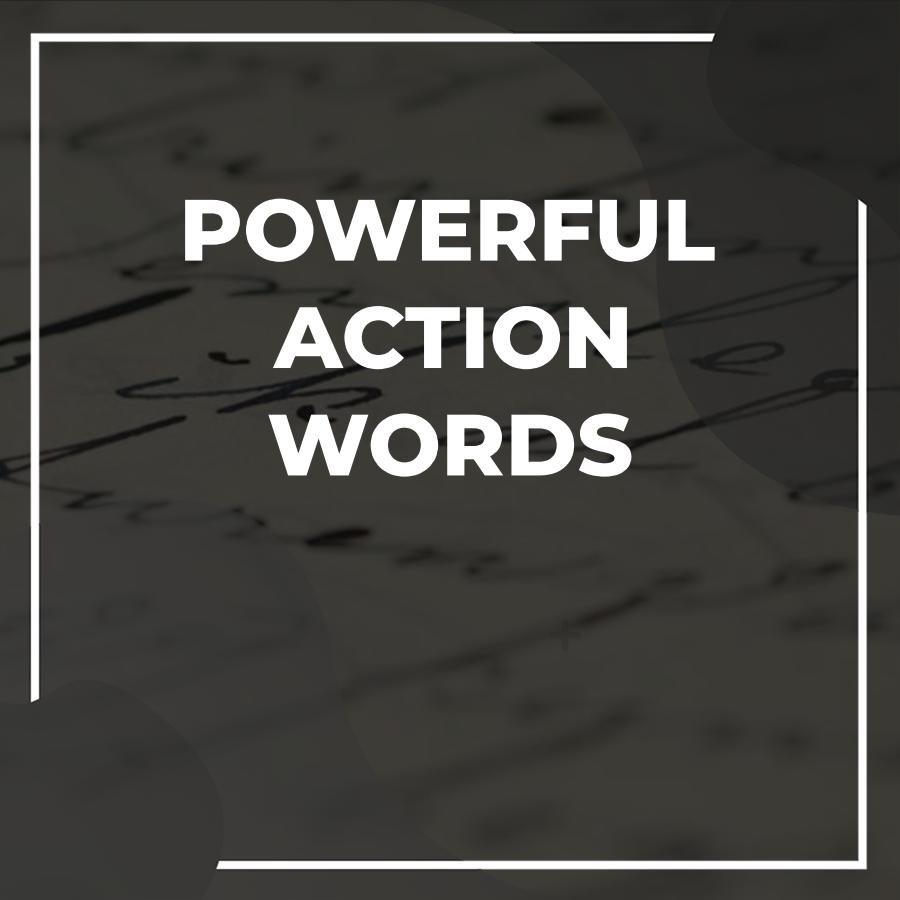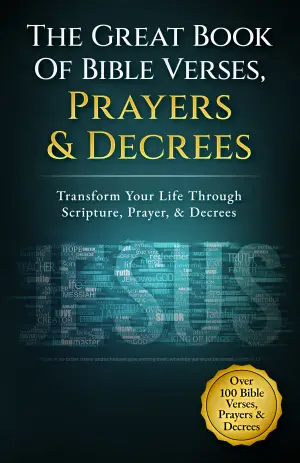Many writers struggle with choosing the proper verbs. Weak verbs can make a sentence flabby, causing readers to lose interest. The answer to this problem is straightforward: Using strong verbs can add clarity, energy, and precision to writing.
Table of Contents
What Are Strong Verbs?
Strong verbs are action words that convey a clear, specific meaning and evoke vivid imagery. Unlike weak verbs, which may lack impact, strong verbs bring a sense of immediacy and urgency to your writing. For instance, instead of saying “ran quickly,” you could use “raced.” This single word shift can significantly enhance your writing, allowing readers to visualize your characters or actions more effectively.
Why Strong Verbs Matter
No one can overstate the importance of strong verbs. They help create a more dynamic and engaging narrative. When you use strong verbs, you can show rather than tell. This approach immerses readers in your story, drawing them in and maintaining their interest.
For example, consider this sentence: “She walked to the store.” Changing it to “She sprinted to the store” conveys a sense of urgency and excitement. The word “sprinted” indicates not just speed but also intention and emotion, revealing something about the character’s state of mind.
Finding Strong Verbs: Resources and Techniques
Finding strong verbs may be challenging, but several resources are available to help. Thesauruses are a classic tool, allowing you to explore synonyms that may better capture the essence of your action. Online resources — including verb lists and writing blogs — provide inspiration and ideas for more vigorous language.
Another effective method is to read widely and critically. Notice how established authors wield strong verbs in their writing. By analyzing their techniques, you can incorporate robust language into your style.
Examples of Strong Verbs in Action
To better illustrate the impact of strong verbs, let’s take a look at some practical examples.
In Fiction
Imagine you’re crafting a scene in a novel. Instead of saying, “The dog barked loudly,” you could say, “The dog howled.” This example not only conveys the action but also imparts a sense of urgency and emotion.
- Weak: The fan blew air.
- Strong: The fan whirled.
This simple change transforms the sentence from a mundane observation to a lively description. The verb “whirled” suggests motion and energy, making the scene more engaging.
In Nonfiction
In nonfiction writing, particularly in persuasive or instructional pieces, strong verbs can drive your point home. Consider the difference between these sentences:
- Weak: The manager said to improve teamwork.
- Strong: The manager urged the team to collaborate.
Using “urged” changes the tone from a passive suggestion to an active call to action, reinforcing the message and motivating the reader.
Avoiding Weak Verbs
Being aware of weak verbs is equally essential. Common weak verbs include “is,” “are,” “has,” and “does.” While they can serve a purpose in specific contexts, overusing them can lead to dull writing.
Instead of saying, “The book is interesting,” opt for “The book captivates.” Not only is this stronger, but it also provides a clearer image for the reader, enhancing their experience with the content.
Crafting Sentences with Strong Verbs
Strengthening your writing involves learning how to construct sentences that effectively leverage strong verbs. Accomplish this through various techniques:
Active Voice Over Passive Voice
Passive voice can dilute the power of your writing. For instance, instead of saying “The ball was thrown by John,” use “John threw the ball.” The active voice is straightforward and punchy, making the action more direct.
Vivid Descriptions
Strong verbs often work best when paired with vivid descriptions. Instead of saying, “The bird flew away,” you could say, “The eagle soared into the sky.” Here, “soared” provides a more vibrant picture and connects with readers on an emotional level.
Be Specific
Being specific with your verb choices can also heighten their strength. For example, instead of writing “She made a noise,” try “She shrieked.” “Shrieked” is far more specific and conveys a particular feeling that “made a noise” clearly does not.
Strong Verb Exercises
Improving your use of strong verbs can be done through consistent practice. Here are a few exercises to help:
Verb Replacement
Take a piece of your writing and highlight all the verbs. For each weak verb, replace it with a strong verb that better conveys the action. This exercise sharpens your awareness of verb strength and encourages you to think critically about your choices.
Rewrite Sentences
Choose sentences from your favorite books or articles. Rewrite them while replacing weak verbs with strong ones. This practice not only improves your writing but also allows you to study how different authors handle language and action.
Flashcards
Create flashcards with weak verbs on one side and their stronger counterparts on the other. Regularly review these cards to enhance your vocabulary and writing ability. This technique reinforces your understanding and memory of strong verbs.
The Role of Context in Verb Choice
Using strong verbs isn’t just about picking vibrant words; context plays a critical role. A verb that works beautifully in one scenario may fall flat in another.
For example, consider the verb “exploded.” In a context describing fireworks, it creates excitement and joy. In a context of a fragile relationship, it may produce negative connotations. Understanding the nuance of context allows you to choose verbs that not only strengthen sentences but also align with your intended meaning and tone.
Encouraging Action in Writing
Strong verbs have the power to instigate action, making them particularly vital in persuasive writing. When crafting calls to action, opt for commanding verbs that incite movement and decision-making.
Instead of saying, “You can consider joining our club,” use “Join our club.” The latter is direct and convincing, making it clear what you want the reader to do.
Analyzing Strong Verbs in Literature
If you’re looking for inspiration, analyzing works by well-known authors can give insights into how strong verbs craft powerful storytelling.
Take a moment to explore the writing of authors like Ernest Hemingway, whose sparse prose relies on powerful verbs to convey complex emotions. In contrast, someone like J.K. Rowling creatively employs strong verbs to evoke vivid imagery, drawing readers into her magical world.
Examining Style
Observe how each author structures their sentences. Often, they rely on an active voice and strong verbs to create engaging narratives. Analyzing these elements can help you develop your voice and style.
Using Strong Verbs in Different Writing Forms
Strong verbs are essential not just in fiction but also in poetry, essays, and other forms of writing. Here’s a breakdown of their application across various genres:
Poetry
Poets rely on vivid, strong verbs to evoke emotions and paint pictures with words. Instead of saying “The waves moved,” a poet might write “The waves surged.” This difference creates powerful imagery that resonates with readers.
Essays
In academic writing, using strong verbs enhances clarity and precision. For instance, instead of saying, “The research shows,” you could say, “The research reveals.” This small change makes your writing more persuasive and impactful.
Blog Writing
In blog writing, your goal is to engage and convert readers. Use strong verbs in headlines and throughout your content to captivate your audience. Change “The new product is good” to “The new product dazzles.” This switch creates a dynamic hook that encourages readers to read further.
Impact on Reader Engagement
The use of strong verbs can dramatically influence reader engagement. They help the story stay dynamic and engaging, prompting readers to invest emotionally in the story or argument introduced.
A strong opening sentence that employs a compelling verb can set the tone for the rest of your writing. Consider how J.K. Rowling begins “Harry Potter and the Sorcerer’s Stone” with vivid imagery that pulls readers into the world of magic through action-driven verbs.
Final Tips for Mastering Strong Verbs
- Read Actively: When reading, take note of strong verbs in use. Consider how they affect your understanding and enjoyment of the text.
- Practice Daily: Integrate vivid verb exercises into your daily writing routine. Consistent practice will help reinforce your instincts when it comes to verb selection.
- Seek Feedback: Share your writing with peers or writing groups. Request specific feedback regarding your verb choices and consider their suggestions.
- Embrace Editing: Revising is key in the writing process. During the editing stage, focus on strengthening verbs to enhance clarity and energy in your sentences.
Exploring the world of strong verbs opens a world of possibilities for writers seeking to refine their craft. By embracing strong verbs, you can create more compelling, clear, and dynamic narratives that resonate with your readers.
Additional Information
Strong verbs have an impressive ability to invigorate your writing and bring your stories to life. Here are some facts many writers overlook:
- Specificity is Key: Strong verbs convey precise actions, allowing readers to visualize scenes more vividly. For instance, “ran” is vague compared to “darted,” which implies speed and urgency.
- Cut the Adverbs: Using strong verbs can eliminate the need for adverbs. Instead of saying “she ran quickly,” use “she sprinted.” Doing so strengthens your sentence and keeps your writing tight.
- Active Voice Rules: Strong verbs naturally lead to active voice, making your writing more dynamic and engaging. An active sentence, for example, “The dog chased the ball,” is more engaging than “The ball was chased by the dog.”
- Emotional Weight: Certain strong verbs carry emotional undertones that resonate with readers. For instance, “yelled” conveys urgency or frustration, while “whispered” can suggest intimacy or secrecy.
- Varied Vocabulary: Incorporating a range of strong verbs keeps your writing interesting. Instead of using “said” all the time, mix it up with “declared,” “murmured,” or “exclaimed,” depending on the context.
- Visual Imagery: Strong verbs can create vivid pictures in a reader’s mind. Words like “soared,” “plummeted,” or “glided” provide an instant snapshot of the action, enhancing the storytelling experience.
- Context Matters: The impact of strong verbs can change depending on context. The same verb can evoke different feelings or images in various scenarios, so always consider the surrounding words.
- Rescue Subpar Phrases: Are you stuck with a bland sentence? Strong verbs can often turn it into gold. For example, “The birds went away” can be transformed into “The birds fled,” adding a sense of urgency.
- Cultural Connotations: Some strong verbs carry cultural weight or idiomatic associations that can either enhance or confuse your text. Be mindful of your audience to ensure clarity.
- Practice Makes Perfect: The best way to discover and master strong verbs is to read widely and write regularly. Notice how accomplished authors deploy these verbs to energize their narratives.
Frequently Asked Questions (FAQs) Related to Strong Verbs
Q. What are strong verbs?
A. Strong verbs are action words that convey a clear and specific meaning. They add energy and vividness to writing.
Q. How do strong verbs differ from weak verbs?
A. Strong verbs provide a more precise action, while weak verbs often need additional adverbs to convey the same strength or clarity.
Q. Can you give me an example of a strong verb?
A. Sure! “Sprinted” is a strong verb, suggesting quick and purposeful movement, while “ran” is a weaker choice that doesn’t convey as much detail.
Q. Why should I use strong verbs in my writing?
A. Using strong verbs enhances clarity and engagement, making your writing more dynamic and appealing to readers.
Q. Are there any tips for finding strong verbs?
A. One tip is to replace any verb+adverb combination with a single strong verb. Instead of saying “ran quickly,” say “sprinted.”
Q. How can strong verbs affect the mood of my writing?
A. Strong verbs can create a more vivid mood or tone. For instance, “shouted” feels intense, whereas “said” seems much more neutral.
Q. Should I avoid all weak verbs?
A. Not necessarily. Weak verbs have their place, especially when you want to create a more casual tone. Balance is key!
Q. How can I practice using strong verbs?
A. Try rewriting sentences by swapping out weaker verbs for stronger ones. This exercise can help develop your eye for vivid language.
Q. Can strong verbs help with character development?
A. Yes! Strong verbs can reveal a character’s personality, emotions, and motivations through their actions.
Q. Is it possible to overuse strong verbs?
A. Yes, overusing strong verbs can make writing feel forced or overly dramatic. Aim for variety while maintaining clarity and strength!
Conclusion
Using strong verbs in your writing is essential for clarity and impact. They add energy to your sentences, making your prose more engaging and dynamic. By selecting precise verbs, you can convey your message effectively and hold readers’ attention. So, the next time you sit down to write, take a moment to replace weak verbs with stronger alternatives. Your writing will shine, and your readers will thank you for it!







